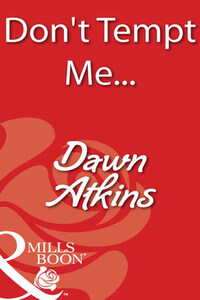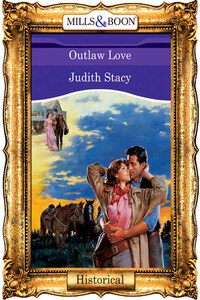IT WAS LATE when she sank onto the barstool. Still wearing her best dressed-to-kill sexy tuxedo dress, Trina Roberts had received immediate attention from the bartender.
“Hot night?” he said. “What’ll you have?”
Hot didn’t cover it. Train wreck didn’t cover it. Nuclear explosion didn’t cover it. “Mojito, please.”
“Coming up,” he said.
While she waited, she took a deep breath and glanced around the bar. The crowd had thinned out. Her gaze stopped on a man seated at the other end of the bar, his head bowed over a squat glass of amber-colored liquor.
His tux tie was unfastened along with the top buttons of his shirt. She knew that profile, the hard jawline, straight nose and dark hair uncharacteristically mussed over his forehead.
Walker Gordon.
Her heart clenched for him. He looked miserable, desolate, destroyed. She couldn’t blame him. After all, he’d just been publicly dumped at the altar by Brooke Tarantino, the great-granddaughter of the founder of Bellagio Shoes. That was bad enough, but the dumping had been conducted on live television with millions of witnesses.
Trina had attended the wedding because she worked for Bellagio in PR. In fact, she’d worked with Walker, an advertising contractor that Bellagio had hired several years ago. From the beginning, she’d liked his combination of quick intelligence and sense of humor. And it didn’t hurt that he had a great body and sexy eyes.
The bartender returned with her drink and she paid her tab, sipping the mojito and trying not to look at Walker. Her gaze, however, kept wandering toward him. She’d never seen him missing an ounce of confidence. He oozed solid assurance and even though she hadn’t totally understood his relationship with Brooke Tarantino, he’d once revealed part of the attraction. Brooke was entirely too self-involved to ever want children. That suited him fine because he didn’t want children, either. Being a father, he’d confessed, would be a surefire path to failure for him. He’d made a joke in that way that people did when they weren’t completely joking, that he’d come from a long line of bad fathers and he was determined not to continue the trend.
His broad shoulders were folded forward. He leaned against the bar, his gaze vacant.
Pity mixed with anger. Why had Brooke done this? Especially this way. With a sigh, she picked up her mojito and wandered to the stool beside him.
He glanced at her and closed his eyes, but gave a nod of recognition.
“Sorry,” Trina said. “Sucks to be you.”
His mouth twitched slightly and he opened his eyes, taking a sip from his glass. “Can’t disagree.”
“I saw one reporter get you. Did anyone else—”
“I didn’t move fast enough. Two more caught me before I left the church.”
She winced. “Sorry.”
“Can we talk about something else?”
Trina nodded, another surge of sympathy sliding through her. “Sure,” she said, searching her mind for a neutral topic. She took a few sips and swallowed the last of her mojito. “So, what’s your favorite game show?”
“Jeopardy,” he said taking a sip. “What about you?”
“Wheel of Fortune.”
“You’re a word person,” he said.
“And you’re a fact person,” she said.
“Pretty much.”
Silence fell between them. Trina felt the urge to fill it. “There was another old game show I liked. I only saw it in reruns. Name That Tune.”
“Oh, yeah. I think I saw it a couple of times when I stayed home from school because I was sick.” He tossed back the rest of his drink and lifted two fingers toward the bartender, indicating he wanted a refill for both of them. “What kind of music do you like?”
“A little of everything. Back then I liked whatever my mother hated,” she said with a smile.
His lips tilted in a half smile. “Teenage rebel?”
“Some. I just couldn’t do the Stepford debutante thing. I dug in my heels and made my mother crazy. What about you?”
“My father hogged all opportunities for rebellion. He left my mother and moved to the Cayman Islands, started a financial service and married a woman down there.”














